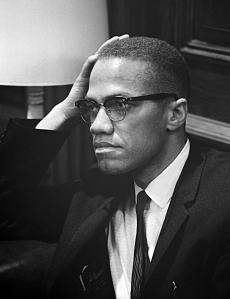Last Updated on February 25, 2024
From key canonical works, the scholarly hypotheses relating to the works of William Shakespeare to the brain numbing babbling of celebrities like Jordan, the ghostwriter phenomenon has a rich, varied and interesting history.
Often a murky part of literary production, ghostwriting has nevertheless persisted through the ages. Today we will discuss this form of creative writing and see how it came about.

People have sought the services of ghostwriters willing to remain hidden in exchange for the enjoyment of crafting a work and of course the financial rewards, which can often be significant.
Many high profile celebrities simply do not possess the writing abilities to produce a full autobiography, but have a riveting tale to tell, and therefore need a gifted scribe they can dictate to.
Other works from the canon have been pieced together over a long period of time before the author phenomenon gained importance.
Works from the early ages when oral traditions were deemed more important than preserving the stories as written tomes have often been attributed to one author, who may or may not be as fictional as the characters immortalised in the narratives.
For whatever reason they write the work, ghostwriters continue to thrive and there have been some extremely interesting and controversial examples of ghostwriting throughout literary history, some surprising and some obvious.
Few works match the importance and influence of Homer’s The Iliad and The Odyssey in world literature. However, the legendary blind poet who immortalised the tale of the sack of Troy and characters like Achilles, Hector, Odysseus and Helen may have been a fictional construct himself.
No certain date has been ascertained for the creation of the two epic poems and there widespread retelling by poets in an age of oral recitation means the poems may have been reworked and altered over centuries, making attribution to a single author close to meaningless.
Homer’s persona is more a form of useful categorisation for works fashioned over time by oral poets unaware of their ghostwriting activity.

Among the most important works in our history, The Bible is the classic example of a ghost written work.
The Old Testament comes from an oral tradition similar to that which produced Homer’s works, but this keeps with the desired tone for the Hebrew Scriptures, attribution to human authors would fit uneasily with texts meant to collect the actions, mysteries and revelations of God.
The New Testament is equally strong as an example of ghostwriting. Scholars believe these too were dictated or reworked in the very early stages of Christianity.
The Apostles were most likely entirely illiterate, while the Gospels are written in Greek showing higher learning uncommon among the working classes from which the Apostles came.
While most academics scoff at the idea, gallons of ink have been spent arguing that William Shakespeare was not the author of the masterpieces attributed him. Ironically, it was intellectual elitism that first began the theories, born out of disbelief that a man without a University education could create such apparently learned works.
Was he really rival Christopher Marlowe, who faked his death in a tavern in Deptford to continue writing through Shakespeare as a ghostwriter? Was he the genius Francis Bacon, taking a break from scientific investigation to poetically render the human condition incognito?
Or was Shakespeare Edward de Vere, the 17th Earl of Oxford, as the new film Anonymous conjectures, protecting his upper class persona by employing a lowly theatre player to pose as the author of his plays.
In truth, what we do know of Shakespeare’s personal life, including his upbringing in Stratford-upon-Avon, is clearly present in the poetic imagery of his plays.
The plays exist in various forms, due to the haphazard nature of publishing at the time, making Shakespeare scholarship an almost forensic practice, but while Shakespeare did collaborate with other playwrights, the theory his plays were completely ghostwritten is rather fanciful.

Skipping through the centuries, there has been much speculation that Truman Capote ghostwrote a substantial part of Harper Lee’s magnificent Pulitzer Prize winning novel To Kill A Mockingbird.
Now largely discredited, the rumours arose due to the fact Harper Lee never published another book, that she and Capote had been friends from childhood and that she had helped him research In Cold Blood while finishing her novel. The lines between advice, collaboration and ghostwriting can sometimes blur.
Running a country or political movement leaves little time for literary endeavours, yet many political leaders have felt the need to express themselves in writing and have used ghostwriters to do so.
US President John F. Kennedy won the Pulitzer Prize for his book Profiles In Courage, which collected stories of US senators who had acted in opposition to public opinion in order to stay true to their principles.
However, when his speechwriter Theodore Sorenson published his autobiography Counselor, it emerged he had written a large amount of JFK’s book.
Another classic example of political ghostwriting is the stirring autobiography of Malcolm X. Alex Haley, author of the celebrated novel Roots, worked as a ghostwriter, shaping long interviews with Malcolm X into the work that was completed in the weeks following the political leader’s assassination.

Haley is often seen as more of a co-author than a ghostwriter of the autobiography; without doubt he shaped the narrative style of the tome and censored controversial aspects of Malcolm X’s political viewpoint, particularly his anti-Semitism.
Despite minimising his voice, Haley deliberately crafted a powerful portrayal of his subject and his immense influence on the finished work is far from invisible.
How have we arrived at the current role of the ghostwriter? One major influence has been the collaborative process of the film writing and making process. Tom Clancy acts akin to a director in the way he oversees the production of his novels and computer game scenarios by ghostwriters.
Some collections of popular novels like the Nancy Drew series are written under a pseudonym, in this case the fictional author Carolyn Keene, by a team of ghostwriters, evolving the series into something similar to a brand.

Celebrities who want their story heard but lack the writing skills regularly use ghostwriters.
David Beckham’s successful autobiography My Side was ghostwritten by broadcaster and former Eastenders actor Tom Watt, while Jordan’s autobiography Being Jordan was also ghostwritten. These celebrity tell-all books have established a lucrative genre of their own.
There has been a recent example of a satirical celebrity tell-all openly featuring an implausible author. Me Cheeta is both a comic and heartrending autobiography that claims to have been written by the famous chimpanzee that starred in the Hollywood Tarzan films.
Authorship itself can be used as a device for literary effect, which gives the ghostwriter far more scope.

Finally, the work of the ghostwriter has been elevated to a vital role by the web. Wikipedia would not exist without the editorial input of site visitors, who shape each article entry.
Through malleable online content all web surfers perform the role of the ghostwriter, leaving their traces, via a worldwide web of endless collaboration.

